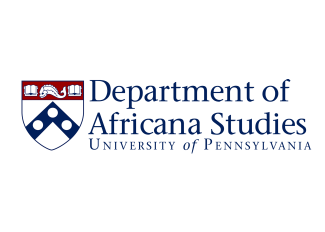
As faculty and graduate group members in the Department of Africana Studies, we feel it is incumbent upon us to speak to the tragic, sorrowful and racist treatment of the remains of two children, Delisha Africa and Tree Africa, killed in the bombing of MOVE. Although this tragic event occurred on May 13, 1985, the presence of these remains within the Penn Museum only very recently became public knowledge. We recognize that other departments on campus are working to raise awareness about systemic racism and the legacies of slavery and racial discrimination, particularly when exploring Penn’s own history. Nonetheless, the Department of Africana Studies was founded to play a special role as academic witnesses to and chroniclers of the ferocity of racism.
From that vision, we must protest how this long-standing “secret” has been kept. Many within the community of the Penn Museum – undergraduate and graduate students, faculty and lecturers – knew of the presence of the remains of these Black children, in a container smaller than a shoe box – within the museum’s walls. Indeed, their remains were even the subject of the 2019 Coursera course Real Bones: Adventures in Forensic Anthropology, taught for Princeton by Janet Monge. An opinion piece in last week’s Philadelphia Inquirer stated that within this course, Dr. Monge explored MOVE as a case study. The course was intended to “restore personhood” in forensic anthropology. No matter the motivation, no course can call the restoration of personhood to Black bodies an “adventure”. Such a course fits far too well within the long history of scientific racism in academia in many parts of the world and its practitioners’ academic casual use of dead Black bodies (in this case, we would say murdered).
While we agree with many that the University must go further in its investigation and public response to this revelation, we hold that the Penn Museum’s Board of Directors must also be held accountable for the neglect and grave disrespect of these Black children’s remains. There is nothing new about this kind of institutional treatment, at Penn or elsewhere. In 2020, Richard Kent Evans published a book called MOVE: An American Religion, in which he describes that for 6 months, bodies of MOVE members languished in the city’s morgue, decomposing, and that machine operators crushed bones and mangled skeletons. Yesterday, the American Anthropological Association issued its own condemnation of the handling of Philadelphia Bombing Victims’ human remains. But we can go back further, to 1990, and the establishment of the Native American Graves Protection and Repatriation Act (NAGPRA. The MOVE bombings had occurred only five years earlier. Yet, only now—and as a result of public ‘discovery’—are the University of Pennsylvania and the Penn Museum’s Board of Trustees taking seriously their role in disgracing not only this Black child’s remains, but their family and their community as well. To the degree that this occurred in the name of “faculty expertise,” we also call upon the Penn Museum to report the use of these remains as a violation of IRB protocol.
We must call out the reticence, hesitance and obfuscation of the Penn Museum and the University of Pennsylvania in addressing this decades-long tragedy for the benefit of all students. As institutions that thrive because of our place within Philadelphia, we owe this to inhabitants of this city, particularly to those whose children, even when dead, were forcibly “lost”. At this time of deep turmoil and reckoning over structural racism in America, we expect the Penn Museum and the University of Pennsylvania do more than simply appoint two members to investigate the use of these remains. A complete inventory and physical accounting of these and other remains and collections held by the Museum is long overdue.
MOVE Press Conference: https://www.youtube.com/watch?v=5J3N1D10Fcw
APRIL 28,2021 5:30 meeting: https://fb.me/e/2iXOYpG8r
MOVE demands at bit.ly/justiceforMOVE.
